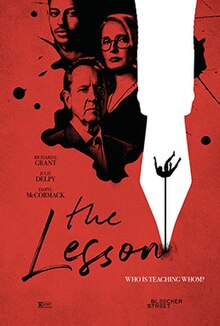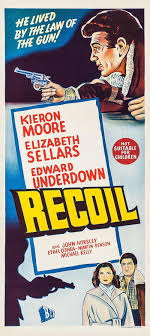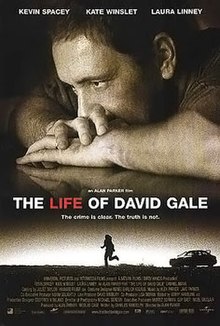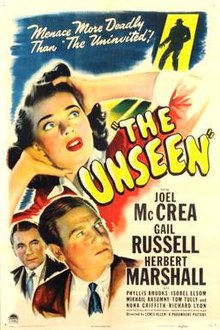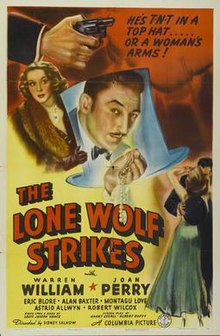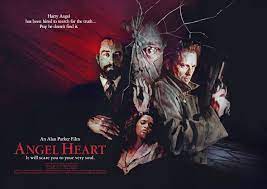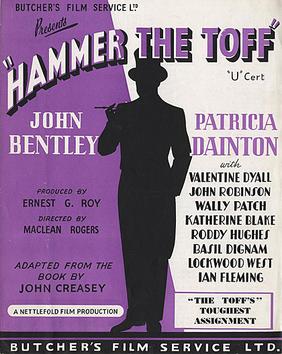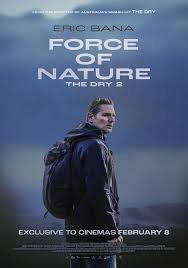
One decision – one small mistake – can change everything. Federal police detective Aaron Falk (Eric Bana) attempts to coerce further information about an international money laundering scheme from a company employee, Alice Russell (Anna Torv) but she refuses to give him any further information when he approaches her on the school run. The next day, she embarks on a corporate team-building hiking retreat to the rainforest in the (fictitious) Giralang Ranges of Victoria with four other company employees, her boss Jill Bailey (Deborra-Lee Furness), childhood friend Lauren (Robin McLeavy) and sisters Brianna aka Bree (Lucy Ansell) and Bethany aka Beth (Sisi Stringer). Three days later, Falk receives an incomprehensible phonecall from Alice which quickly drops out, only to later be informed by fellow agent Carmen Cooper (Jacqueline McKenzie) that Alice’s hiking partners had returned from their trip injured and Alice is missing. Suspecting something has happened to her due to her being a whistle blower, Falk and Cooper quickly join the search to find her. In flashbacks, it is revealed that Falk’s mother Jenny (Ash Ricardo) also disappeared from the same area during a hiking trip with him (Archie Thomson) and his father Erik (Jeremy Lindsay Taylor). After tirelessly searching for her for days, the pair finally found her injured and malnourished but she ultimately died shortly afterwards in hospital. Alice’s co-workers reveal that during the first night of the trip, Jill’s husband Daniel (Richard Roxburgh) who was responsible for the laundering scheme, met up with the group and led Alice away from them. Afterwards, Alice became frantic and desperate to leave the trip early even after Daniel has left. Brianna, who’s been hospitalised due to a bite from a funnel web spider, reveals that she’d misread the map in her hungover state and caused the group to become lost. While attempting to follow the river back home, the map falls into the water and Lauren is injured while attempting to retrieve it. Bethany later admits to Falk that she previously had a drug problem, which had resulted her in serving jail time due to her neighbours reporting her for selling her sister’s belongings for drug money, which resulted in Alice not trusting her. The group continues on and Jill finds out that Alice has seemingly been intentionally leading the group in the wrong direction and becomes furious. The next day, the group discovers an abandoned cabin and decide to stay there for the night despite Alice’s protests. Later on, they discover the gravesite of a dog, causing Alice to insist they may be on the hunting grounds of an infamous serial killer who lured his female victims using his dog, but the group brushes her fear off as her trying to persuade them to leave the cabin … Your mind starts to play tricks on you out there. You get really paranoid. That talented Australian novelist Jane Harper wrote one of the best novels of the past decade The Dry and following its successful adaptation starring the great Eric Bana a followup was destined to be on the cards – the 2017 novel Force of Nature came first and this adaptation was made in 2022 in a very different and non-dry environment. Perhaps it should be called The Damp. Everyone is soaking. Moving deep into the undergrowth of the rainforest acts as a kind of metaphor for a story that has many tangled strands – Aaron’s own psyche and past, his association with whistleblower Alice, her school-age daughter Margot’s (Ingrid Torelli) alleged bullying of her colleague Lauren’s daughter Rebecca (Matilda May Pawsey), the financial misdeeds at Alice’s company boss and the crimes of a four decades-old serial killer in the very area Alice is missing. Knitting these together into a coherent screen story seems almost impossible very quickly particularly when the four remaining women’s recollections resemble those of Rashomon – overlapping, contradictory and untruthful. Linking the search for Alice with Aaron’s retracing his steps into his own history with a trip taken alongside his parents seems a trope too far – and one presumes it forms a link to the notorious serial killer – yet clever construction, transitions and characterisation through the twists and turns of a mystery plot ultimately keep everything from tipping too far into the realm of coincidence or predictability. The local police sergeant Vince King (Kenneth Radley) wonders why Aaron is really out here, a long way from finance fraudsters. Paired with the brusque Carmen, Aaron’s forced introspection means that the flashbacks conjoining his mother’s predicament with Alice’s situation force them – or squeeze them – into the same narrative loop. The undercurrent of female relationships – at work, mothering, friendship and colleagues – with their basis in bullying is never far from the surface. And could they be any worse prepared for this trek? Can we just keep this between the five of us please? And, the quid pro quo into which Alice has been forced by the feds for what she was prepared to do for her daughter is the moral quandary that literally turns this in to a guilt trip writ large, adding melodrama to an already busy screenplay. Everyone has reason to dislike and even motive to kill Alice but we find ourselves asking why sisters are working at the same company and why Alice and Lauren are friends. It seems unlikely. Perhaps this structure dilutes the impact of the first film with the multiple storylines and one unresolved plot issue but Bana is somehow the still centre of the complications, a restless soul with a desk job whose past knowledge of the territory makes it more navigable. Even with a background in tragedy however this doesn’t have the emotional resonance it strives for and the mood is broken by issues of plotting placing it at some distance from a famous Aussie film about a disappearance, Picnic at Hanging Rock. It helps that this is lined out with some of the country’s best (and best known) actors with Torv now an international name thanks to TV’s The Newsreader, while Furness, a scene-stealing Roxburgh and an underused McKenzie are a pleasingly familiar ensemble, driven by a powerful score from Peter Raeburn. Beautifully shot in a number of Victoria parklands by Andrew Commis, this is written and directed by Robert Connolly, reprising his role from the first film. At least out there Nature holds us all to account
